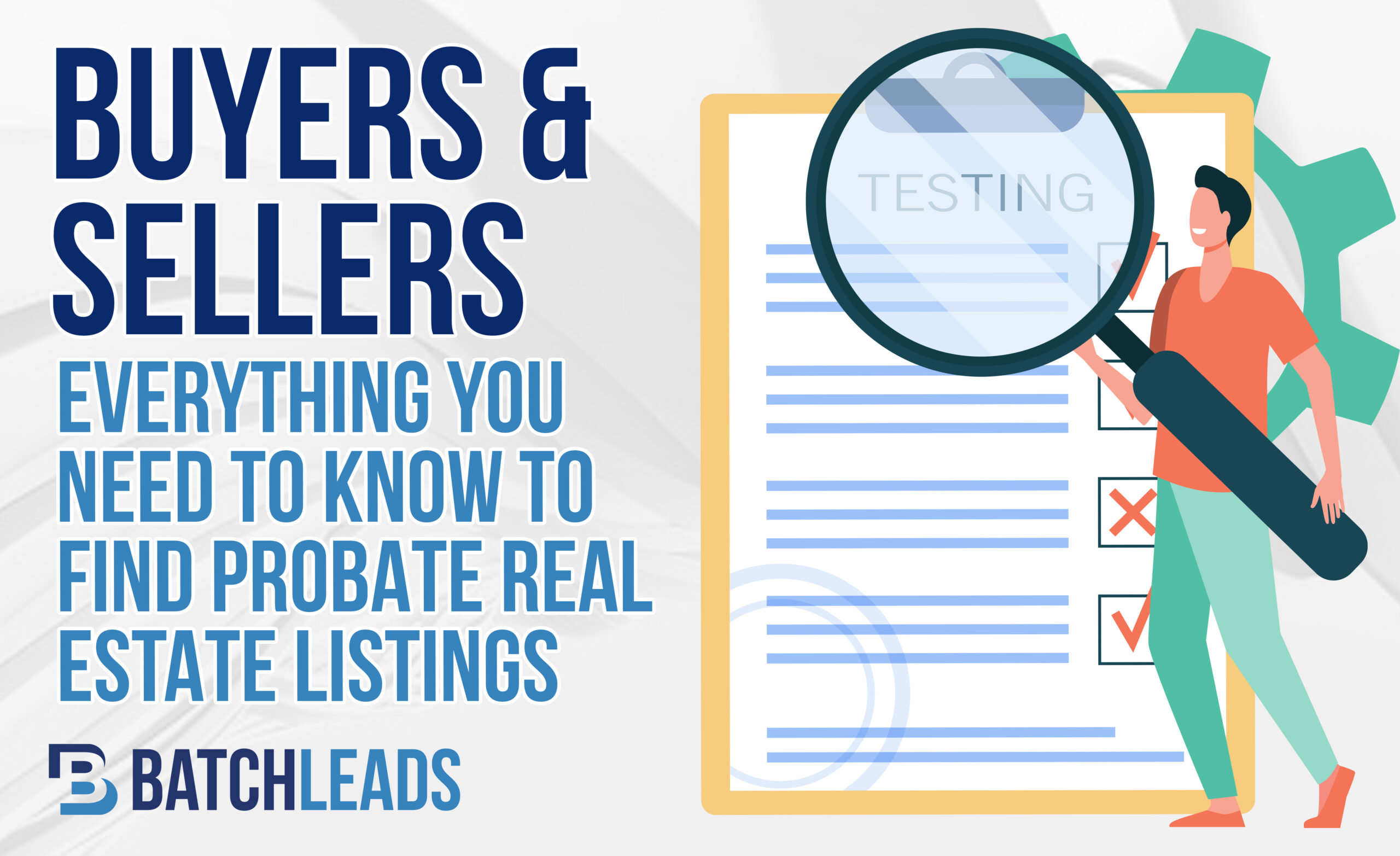Probate is often a long and arduous process for families, and it can be a drawn-out endeavor for real estate investors, too. If you’re interested in learning about real estate probate, it can be hard to know where to start. What is a probate listing, and where do you find out how to get probate listings? A probate list is an inventory of properties recently entered into probate court. This means that the property is being sold to settle an estate.
These properties can offer lucrative investment opportunities, but they can also entail complex sale terms, or the property in question may be in poor condition. Still, if you’re looking for a real estate opportunity that’s challenging yet promising, you can start by browsing your local probate list.
What Is Probate in Real Estate?
Probate in real estate refers to a property’s entry into court as an asset in a deceased person’s estate. This may happen if a person has no will, their will is unclear or contested. An estate may also enter probate court to ensure that the instructions of a will are executed correctly. Unless the property transfer is specified in a living trust, transfer-on-death deed, or community property agreement, it is likely to end up in probate.
In court, an inventory is taken of the individual’s estate, including their assets and debts. The court may rule that the property is transferred to a beneficiary, but it may also be sold to settle debts. This is how probate listing real estate becomes available. Real estate investors can take advantage of great deals on probate listings and find properties to rehab, flip, and make a great profit on.
How To Find Probate Listings?
Where do you find a probate list to start scoping out properties? These listings are typically first announced to the public in court records. In most cases, records can be accessed for free or for a small administrative cost, and you can usually download them online. The information should include the names of the executors and attorneys representing the estate and the judge presiding over the case. Additional information such as the estate’s creditors and beneficiaries may even be included.
Court records aren’t the only place to find probate listings, though – or even the best place. Searching through these documents meticulously and taking down contact information for each property is a time-consuming task. You can invest your time more effectively by using a program that automatically gathers essential information. A residential lead generation platform, for example, allows you to focus on making contact with leads and pursuing promising deals.
4 Steps to Probate in Real Estate
Succeeding in probate real estate can offer great returns on your investment, but it isn’t an easy endeavor. On the contrary, it requires intensive work and a lot of initiative. Follow these four steps to look for your first probate real estate investment if you want to give it a shot.
- Find leads efficiently: Nothing is more important than using your time effectively to find and pursue investment leads. Rather than researching individual local listings, you can buy leads or use a lead generation platform to access the information you need efficiently.
- Follow up on leads effectively: It can be easy to hone in on the potential profit when pursuing probate leads, but it’s important to remember that these properties are available because of somebody’s loss. When you’re reaching out to leads, it’s essential to be sensitive and acknowledge that they may be grieving.
- Develop an investment strategy: If you’ve found the perfect probate property and are negotiating with the estate’s representative, you’re on your way to success! To ensure that you see the return you seek, you need to develop a clear strategy for managing your investment.
- Make the most of your portfolio: An investment strategy will help you choose the best properties, but after closing a deal, you need to decide what comes next. Your strategy should include a plan for generating income from the property, whether from rehabbing and reselling it or using it as a rental.
How To Buy Probate Real Estate
You know how to find probate real estate, but do you know how to proceed with a purchase? This is the most critical part of the process, but it can also be mystifying. Because estates, rather than individuals, sell probate properties, the process can be more complex than a traditional real estate deal.
You will typically need to contact the probate court in the property’s jurisdiction, and the court will tell you whether the property is being sold at auction or slated for a standard sale. If the latter is true, you can proceed to make an offer, and you may be required to provide a deposit of 10% with this offer. The court will ultimately consider your offer and any others and decide whether you are approved to buy the property.
How To Sell Probate Real Estate
Once you’ve purchased a piece of property from probate, you may want to resell it and make a profit. Luckily, after completing the probate purchase process, the sale process is much simpler. Assuming that the property is in your name and has no liens, you should be able to list it for sale and accept the best offer.
Key Takeaways
Probate real estate can be one of the best investment opportunities, but only if you develop an efficient approach. Investing in a platform that can automatically generate leads is one of the best ways to minimize time spent on research so that you can maximize the time spent pursuing those leads. Once you’ve found a property in probate that you want to buy, you should be prepared for a longer and more complex sale than a typical real estate deal. However, the profit you can make on a probate real estate deal is often worth the wait.



